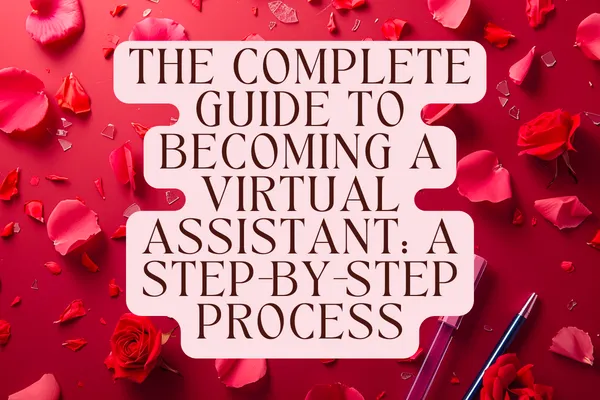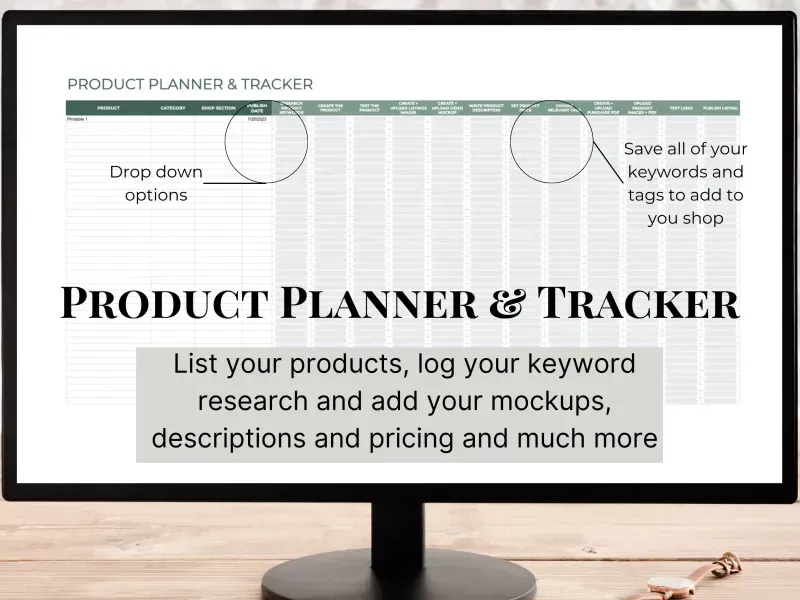WELCOME
Helping Multi-Passionate Introverts & ADHDers
Learn & Monetize new skills, Develop a Business Strategy and Launch your Business
Learn New Skills...
FREE CANVA TOOLKIT

On the Blog...

The Complete Guide to Becoming a Virtual Assistant: A Step-by-Step Process
The Complete Guide to Becoming a Virtual Assistant: A Step-by-Step Process
Introduction
The role of a Virtual Assistant (VA) is one that has grown in importance and complexity in today’s digital-first business environment. From startups to large corporations, the demand for Virtual Assistants has surged as businesses recognize the benefits of outsourcing administrative, technical, and creative tasks to remote professionals. This introduction will give you a brief overview of what it means to be a VA, the importance of this growing field, and what you can expect to learn from this guide.
Brief Overview of the Virtual Assistant (VA) Role
A Virtual Assistant provides support services from a remote location, offering skills that range from administrative tasks like scheduling and email management to more specialized services such as social media management, content creation, and technical support. The versatility of the VA role means that it can be tailored to meet the diverse needs of clients across different industries, making it a dynamic and evolving profession.

Importance and Growth of the VA Industry
The VA industry has witnessed significant growth over the past decade, a trend accelerated by the global shift towards remote work. This growth is not just in terms of the number of VAs but also in the breadth of services they offer. Companies benefit from hiring VAs as they provide flexible, cost-effective solutions without the overhead associated with on-site employees. For many, hiring a VA is an essential strategy to improve efficiency and scale operations quickly.
What to Expect from This Guide
This guide is designed to walk you through every step of becoming a Virtual Assistant, from understanding the basic requirements and essential skills to setting up your business and securing your first clients. Each section is crafted to provide practical advice and actionable tips, ensuring that by the end of this guide, you will be well-prepared to launch your career as a Virtual Assistant. Whether you're looking to start your own business or join an existing agency, this guide will equip you with the knowledge and tools you need to succeed in the VA industry
Section 1: Understanding the Role of a Virtual Assistant
In this section, we'll delve into what it means to be a Virtual Assistant, the variety of tasks they can handle, and the different specializations within the profession. Understanding these fundamentals is crucial for anyone looking to enter this field.
Definition of a Virtual Assistant
A Virtual Assistant (VA) is a remote worker who supports businesses from afar by handling administrative, technical, or creative tasks. Essentially, VAs are independent contractors who provide assistance services from outside the traditional office environment. They use digital technologies to communicate and deliver work online, making them a flexible and scalable resource for businesses of all sizes.
Common Tasks and Responsibilities
Virtual Assistants are versatile professionals whose roles can encompass a wide range of tasks depending on the needs of their clients. These tasks typically include:
Administrative Support: Managing calendars, scheduling meetings, answering phones, data entry, and managing emails.
Customer Support: Handling customer inquiries, providing technical support, and managing client communications.
Social Media Management: Creating content, scheduling posts, analyzing engagement data, and managing social media campaigns.
Content Creation: Writing blog posts, articles, newsletters, and creating basic graphics or videos.
Bookkeeping: Managing invoices, processing payments, and basic accounting.
Project Management: Planning projects, coordinating with team members, and ensuring timely delivery of services.
The scope of work can vary greatly, which is why many VAs choose to specialize in particular areas to better serve specific markets or industries.
Different Types of Virtual Assistants
As the demand for VAs has grown, so have the types of services they offer. Here are three common types of Virtual Assistants:
General Virtual Assistants: These VAs handle a broad array of routine tasks, mainly administrative in nature. They are the go-to solution for businesses needing assistance with day-to-day operations without requiring specialized skills.
Specialized Virtual Assistants: These professionals offer services in specific domains such as digital marketing, graphic design, SEO, or web development. Their expertise is particularly valuable for clients who need specialized knowledge or skills that go beyond general administrative tasks.
Executive Virtual Assistants: Executive VAs provide high-level administrative support much like an executive secretary or personal assistant would. This includes managing complex schedules, handling important communications, and even making strategic decisions.
Section 2: Essential Skills and Qualifications
Becoming a successful Virtual Assistant (VA) requires a strong set of skills and potentially some specific qualifications. This section outlines the core competencies every VA should possess, highlights additional skills that can enhance your offerings, and discusses the training options available for aspiring VAs.
Core Skills Every Virtual Assistant Should Have
1. Communication:
Effective communication is paramount for a VA, as most interactions with clients occur via written or spoken communication. You need to be able to clearly convey information, listen actively, and respond appropriately to client needs. This includes proficiency in writing emails, handling phone calls, and using instant messaging platforms.
2. Time Management:
VAs often handle multiple clients and projects simultaneously. Excellent time management skills are essential to prioritize tasks, meet deadlines, and maintain a productive work schedule. This includes effective planning, foresight in scheduling, and the ability to adapt to changing priorities.
3. Technical Skills:
A competent VA must be comfortable with technology. Familiarity with word processing, spreadsheets, email platforms, and collaboration tools such as Microsoft Office or Google Workspace is essential. Basic understanding of troubleshooting common hardware and software issues is also beneficial.
Additional Beneficial Skills
1. Project Management:
Handling projects efficiently is crucial, especially when coordinating between different stakeholders. Skills in project management involve task delegation, progress tracking, and resource allocation, which ensure that projects are completed on time and within budget.
2. Social Media Management:
With businesses increasingly relying on social media to reach their audience, skills in managing social media platforms are highly valuable. This includes content creation, scheduling posts, engaging with followers, and analyzing performance metrics.
3. Bookkeeping:
Basic bookkeeping skills such as managing ledgers, preparing invoices, and handling payroll can make a VA indispensable to small business owners who need to outsource these tasks.
Qualifications and Training Options
While formal qualifications are not always necessary to become a VA, certain training and certifications can enhance your credibility and skills.
1. Online Courses:
There are numerous online platforms offering courses that cater specifically to aspiring VAs. These courses can cover everything from the basics of starting a VA business to more advanced courses in specific skills like digital marketing or web design.
2. Certification Programs:
Certification programs can provide you with a competitive edge. Look for accredited programs that offer certifications in project management, bookkeeping, or specific software tools. Becoming a certified VA not only bolsters your resume but also reassures potential clients of your professionalism and expertise.
Section 3: Setting Up Your Virtual Office
Equipment and tools needed
Computer
High-speed internet
Software tools (e.g., MS Office, Google Suite, project management software)
Creating an effective workspace at home
Section 4: Building Your Online Presence
For a Virtual Assistant (VA), an effective online presence is crucial to attract potential clients and establish credibility in the industry. This section will guide you through establishing a professional online presence, creating a robust website, utilizing social media, and building a compelling portfolio.
Importance of a Professional Online Presence
A professional online presence serves as the digital face of your business. It allows potential clients to find you, understand your services, and assess your professionalism before they even contact you. An appealing and informative online presence can set you apart from the competition and increase your chances of being hired.
Creating a Professional Website
Key Elements to Include:
Home Page: Introduce yourself and your services with clear, concise messaging. Highlight what makes you unique.
About Page: Provide more detailed information about your background, experience, and personal approach to your work.
Services Page: Clearly list the services you offer, including packages and pricing if applicable.
Testimonials: Showcase reviews from past clients to build trust and validate your expertise.
Contact Page: Include an easy-to-use contact form, your professional email address, and social media links.
Blog: Consider adding a blog to share insights related to your industry, which can help position you as an expert and improve SEO.
Utilizing Social Media Effectively
Social media platforms provide powerful tools to reach and engage with potential clients.
LinkedIn: Essential for professional networking. Share articles, join discussions, and connect with potential clients and industry peers.
Facebook: Create a business page to share updates, promotional content, and interact with customers.
Instagram and Pinterest: If your services involve highly visual tasks like graphic design or event planning, these platforms can showcase your work effectively.
Twitter: Great for quick updates, sharing industry news, and engaging in conversations with brands and influencers.
Building a Portfolio
What to Include:
Examples of Your Work: Tailor your portfolio to showcase services that align with the type of work you want to attract. Include case studies, reports, designs, writing samples, or campaign summaries.
Testimonials and Reviews: Client testimonials and reviews can be incredibly persuasive. They help potential clients visualize the benefits of working with you.
Scope of Projects: Highlight the range of projects you’ve handled, which can illustrate your versatility and ability to manage different types of tasks.
How to Showcase Your Skills:
Organized Layout: Ensure your portfolio is well-organized, making it easy for visitors to find relevant information.
Quality Over Quantity: Choose quality examples that highlight your best work. Make sure each item is up to date and relevant.
Detailed Descriptions: Provide context for each project. Describe the problem, your solution, and the results achieved.
Visual Appeal: Make the portfolio visually appealing and professional. Use high-quality images and a consistent style to enhance your presentation.
Section 5: Finding Work as a Virtual Assistant
Securing work as a Virtual Assistant (VA) involves knowing where to look for opportunities, presenting yourself effectively, and pricing your services competitively. This section covers various strategies to find VA jobs, craft an impressive resume and cover letter, succeed in interviews, and set your rates.
Where to Find VA Jobs
1. Freelance Platforms:
Websites like Upwork, Freelancer, and Fiverr are popular platforms for VAs to find freelance gigs. These sites allow you to create a profile, showcase your portfolio, and bid on projects that match your skills.
2. VA Agencies:
Joining a VA agency can also be a great way to find consistent work. Agencies typically handle the client acquisition process and match VAs with clients based on their skills and availability.
3. Direct Outreach:
Identify potential clients you would like to work with and reach out directly via email or social media. This approach requires a tailored pitch that highlights how your services can solve specific problems they might be facing.
Crafting a Compelling Resume and Cover Letter
Resume: Focus on relevant experience and skills. Highlight specific tools you’re proficient in, successful projects you’ve completed, and measurable results you’ve achieved.
Cover Letter: Customize your cover letter for each application. Explain why you are the ideal candidate for the job and how your skills can benefit the potential client. Be concise, professional, and direct.
Tips for Successful Job Interviews
Prepare Thoroughly: Research the company and the person you will be interviewing with. Understand their industry and the challenges they face.
Practice Responses: Be ready to discuss your background, your approach to work, and specific experiences that demonstrate your skills.
Ask Questions: Show your interest in the role by asking insightful questions about the company’s needs and expectations.
Technical Setup: Since most interviews may be remote, ensure your internet connection is stable, test your webcam and microphone, and find a quiet, professional setting for the interview.
Setting Competitive Rates
Market Research: Investigate what other VAs with similar skills and experience are charging by looking at freelance platforms and VA agency websites.
Value Your Time and Expertise: Set rates that reflect the quality of your services, your expertise, and the complexity of the tasks you handle.
Be Flexible: Consider offering different rates for different services or bundling services at a discounted rate. This can make your offerings more attractive to potential clients.
Communicate Clearly: Be transparent with potential clients about your rates and what they include. Avoid hidden fees to build trust and maintain a positive working relationship.
Section 6: Managing Your Virtual Assistant Business
Operating a successful Virtual Assistant (VA) business goes beyond just completing tasks for clients. It involves managing legal, financial, and relational aspects effectively. This section provides guidance on the essential components of running a VA business, including legal considerations, financial management, and client relationship management.
Legal Considerations
1. Registering Your Business:
Depending on your location, you may need to register your business with local government authorities. This could involve setting up a sole proprietorship, a limited liability company (LLC), or other forms of business entities. Registration not only protects your personal assets but also enhances your professionalism.
2. Contracts and Agreements:
It is crucial to have well-drafted contracts in place with all your clients. These contracts should clearly state the scope of work, payment terms, deadlines, confidentiality clauses, and termination conditions. A solid contract protects both you and your clients by setting clear expectations.

Financial Management
1. Invoicing and Payments:
Develop a streamlined process for invoicing and receiving payments. Utilize reliable invoicing software to send professional invoices and track payments. Define clear payment terms (e.g., due within 30 days) and preferred payment methods (e.g., bank transfer, PayPal, credit card).
2. Taxes:
Understand the tax obligations for your business. This might include income tax, self-employment tax, and possibly sales tax, depending on the services you provide and your location. Consider consulting a tax professional to ensure compliance and take advantage of any allowable deductions.
Client Relationship Management
1. Communication Strategies:
Maintain open, consistent, and professional communication with your clients. Use tools like email, messaging apps, and video calls to stay in touch and provide updates on projects. Set regular check-ins and be proactive in addressing potential issues.
2. Handling Difficult Situations:
Despite best efforts, you may encounter challenging situations with clients. When conflicts arise, handle them professionally:
Listen actively to the client's concerns.
Respond calmly and offer practical solutions.
If necessary, refer back to the contract to clarify responsibilities.
Learn from these experiences to improve future interactions.
Section 7: Growing Your Career
As a Virtual Assistant (VA), the potential for career advancement is significant. Whether you are looking to deepen your expertise in specific areas or expand your business, continuous development and strategic networking are key. This section explores ways to advance in the VA field, including upskilling, cross-skilling, networking, and eventually transitioning to running a full-service virtual assistant agency.
Advancing in the VA Field
Advancement in the VA profession often involves enhancing your existing services, taking on more complex projects, or increasing your client base. This progression can lead to higher earnings and more strategic work. To achieve these goals, focus on building a reputation for reliability, quality, and professionalism.
Upskilling and Cross-Skilling
1. Upskilling:
Invest in your professional development by acquiring advanced skills in your current areas of expertise. For instance, if you specialize in social media management, you might upskill by learning advanced analytics or video marketing techniques.
2. Cross-Skilling:
Expand your service offerings by learning new skills that complement your existing ones. For example, a VA with skills in content writing might cross-skill into SEO and content marketing, making their services more comprehensive and attractive to potential clients.
Both upskilling and cross-skilling can be achieved through online courses, workshops, and by staying updated with industry trends. This continuous learning not only improves your service delivery but also makes you more competitive in the marketplace.

Networking
Building a strong professional network is crucial in the VA industry. Networking can lead to new client referrals, partnerships, and collaborative opportunities. Engage with other VAs and professionals in your field by:
Joining professional groups and forums online.
Attending industry conferences and workshops.
Participating in webinars and virtual meetups.
Connecting on social media platforms like LinkedIn.
Transitioning to a Full-Service Virtual Assistant Agency
For those looking to take a significant step forward, transitioning from an individual VA to running a full-service agency can be an ambitious yet rewarding move. This involves:
1. Expanding Your Team:
Hire other VAs with complementary or more diverse skills to offer a broader range of services to clients.
2. Scaling Your Operations:
Implement systems and technologies that support collaboration and efficiency within your team. This might include project management tools, CRM systems, and communication platforms.
3. Marketing Your Agency:
Revamp your marketing strategy to highlight the comprehensive solutions your agency offers. Focus on building a strong brand that resonates with larger businesses and enterprises.
4. Client Management:
Develop strategies to manage an increased volume of work and a larger client base effectively. Ensure that quality and customer service remain high as your agency grows.
Transitioning to running an agency requires careful planning and a clear understanding of your business goals. It represents a significant shift from working as an individual VA and opens up new avenues for professional growth and financial success.
Conclusion
Embarking on a career as a Virtual Assistant (VA) can be both exciting and rewarding, offering flexibility, variety, and the potential for growth. Throughout this guide, we've explored the essential steps to becoming a successful VA, from understanding the role and acquiring necessary skills to managing your business and planning for future growth.
Recap of the Steps to Becoming a Successful Virtual Assistant
Understanding the Role: We started by defining what a VA does and the various types of services a VA might offer.
Essential Skills and Qualifications: Next, we discussed the core skills every VA should possess, such as communication, time management, and technical know-how, as well as additional skills that can differentiate you in the market.
Setting Up Your Virtual Office: Setting up an efficient workspace with the right tools is crucial for productivity.
Building Your Online Presence: We covered the importance of a professional website and active social media profiles to attract and engage clients.
Finding Work: From freelance platforms to direct outreach, we looked at various strategies to secure assignments.
Managing Your Business: The focus then shifted to the legal, financial, and client relationship aspects of running a VA business.
Growing Your Career: Finally, we explored avenues for career advancement, including upskilling, networking, and possibly expanding into a full-service VA agency.
Encouragement to Take the First Step
Starting a new career can be daunting, but with the right preparation and mindset, becoming a VA is thoroughly achievable. Remember, every successful VA started exactly where you are now. With dedication and persistence, you can build a thriving business that not only meets your financial goals but also brings you personal satisfaction.
If you would like to become a Virtual check out the 90 day VA course here:

FREE DOWNLOAD
Headline that hooks people in, gets them excited and makes them want to sign up.
© Copyright 2024 All In One Digital Hub. | Privacy Policy | Terms & Conditions | Affiliate Disclosure






Facebook
Pinterest